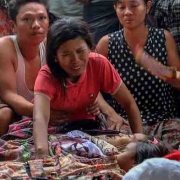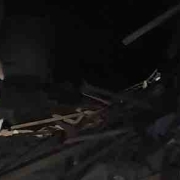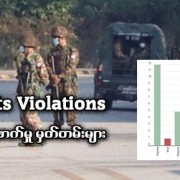Making sense of the International Labour Organisation’s stance on Myanmar
Prior to the massive earthquake, March saw protests in Yangon and other areas of Myanmar calling for action against the Myanmar authorities under Article 33 of the Constitution of the United Nations’ labour agency, the International Labour Organisation or ILO.
The protestors were calling for sanctions against the Myanmar junta as the ILO has been debating their stance on Myanmar with a decision due to be made at the ILO Conference set for June in Geneva in Switzerland. In recent protests, demonstrators called on the ILO to implement Article 33.
Article 33 empowers the ILO to take action when a member state fails to comply with recommendations from the ILO’s Commission of Inquiry. Specifically, Article 33 states that in cases where a member does not fulfill the recommendations, the Governing Body may recommend to the International Labour Conference (ILC) measures of a punitive or corrective nature, including sanctions or other actions, to secure compliance.
Amidst the uproar against the brutal Myanmar junta, with labour unions inside and outside Myanmar attempting to get their voices heard, the “subtleties” of the ILO position appear to be drowned out as some stakeholders call for sanctions and a dramatic clampdown on the junta guilty of crimes against humanity and the infringement of codes of conduct of various labour practices, including forcibly conscripting youth into the military.
What emerges from delving into the views of stakeholders and trade unions operating inside and outside Myanmar is that there is no agreed position by Myanmar unions for any “sanction-like” measures that might lead to more Western brands pulling out of the country.
In what can be described as a “war of narratives”, it is important to draw a line between actions and investments that directly benefit the military junta, on the one hand, and the welfare of workers in Myanmar, on the other – though the line can be blurred at times.
A QUESTION OF ‘SANCTIONS’
What has to be remembered is the ILO cannot directly sanction the junta. It can only offer recommendations that various states can take action on against the junta if they see fit. In one recent report Mizzima published, a Myanmar trade union operating in exile claimed the ILO’s paper entitled “Decision concerning the follow-up to the report of the Commission of Inquiry concerning Myanmar” published on 19 March claimed that the ILO was calling for sanctions against the junta.
But the text of the interim ILO report offers a more nuanced approach.
Since seizing power in February 2021, the military junta has consistently committed violations of international labour standards, including forced conscription into the armed services, forced army portering, clampdowns on labour organizations, and provided a climate of fear – with a number of labour activists thrown in jail.
The interim ILO report – which few are likely to read through and fully understand – makes a subtle distinction between businesses and investments that directly or indirectly benefit the junta and the generals hoarding wealth, and foreign businesses operating in the business sector, such as foreign companies still involved in the garment industry. For example, the junta makes minimal income from garment factories, and it can be argued that the industry does not directly benefit the junta’s “war machine”.
WEAPONS VS WORKERS
While the ILO report stresses a call for a tough line on business or activities that directly support the military junta, through “the support or supply of military equipment or means, including jet fuel, or the free flow of funds to the military authorities,” they note there is a need to “enable continuing support for activities that benefit directly the Myanmar people and their communities and, in particular, through independent and confidential monitoring and reporting systems that provide avenues for complaints of violations to be rapidly and effectively addressed to ensure accountability where freedom of association and forced labour violations occur”.
Here we should note the subtle distinction the ILO is making between supporting weapons of war and supporting the welfare of typically poorly-paid workers, such as in the garment industry, who are desperate to hang on to their jobs, even though some may privately voice support for tough sanctions to essentially wreck the economy in pursuit of regime change.
At this point in time, the military junta’s handling of the economy has led to serious problems for workers and businesses in the country as a whole and an atmosphere where some Western companies are questioning whether they should stay engaged in Myanmar – particularly if their name might be tarnished if they are claimed to be supporting an evil junta trampling on people’s rights.
In recent exclusive reports by American journalist Antonio Graceffo for Mizzima, the dire employment situation was highlighted in Kachin State and Karenni State showing that the Myanmar crisis, sanctions and the poor economic and business environment placed many workers and their families in crisis. Little wonder, he notes, that Myanmar workers have been fleeing to try to work abroad, primarily in Thailand – a country that is proving harder to travel to for those entering legally or illegally.
The labour crisis in Myanmar raises the question of where the ILO needs to focus its attention and what to recommend to countries and foreign companies who are still engaged in the country.
It can be argued that calls on Western companies to pull out of Myanmar could lead to Asian companies – primarily Chinese and Korean – stepping in to fill the void, but providing lower pay and arguably poorer working conditions than Western-supported companies.
Some anti-junta activists appear to want to “throw the baby out with the bath water” in seeking a complete collapse of the Myanmar economy. The argument here is “better the pain now” than letting the junta continue to kill its people for years.
But such an argument appears to ignore the dire living conditions of over a third of the population, and the many struggling to make a living.
THE GARMENT GRIND
Myanmar’s garment industry has long been under the scrutiny of the ILO, trade unions and non-governmental organization concerned about poor workers’ pay and conditions. Under the earlier Thein Sein regime from 2011 to 2015, progress was made by various local and foreign stakeholders to attempt to set standards and improve the lives of workers in garment factories – many of them run by foreign companies, including Western fashion houses, and Chinese and Korean companies.
A European initiative, SMART, began as the country started opening up over a decade ago, sought to help European companies, changing its name to MADE in Myanmar in 2023 in the wake of the military coup.
According to EuroCham, MADE In Myanmar builds on its experience to improve working conditions in the apparel sector by working with factory managers and others to strengthen workplace dialogue. The project is funded through a 3-million euro grant from the European Union and implemented by the German developmental organization Sequa in partnership with EuroCham Myanmar. The project is still in operation – post-coup – and will run till the end of 2026.
MADE in Myanmar contradicts those calling for withdrawal of all foreign investment from Myanmar. As they explain on their website: “The EU and MADE partners believe that the interests of workers in Myanmar are best served by ongoing sourcing from Myanmar, provided that this is pursued responsibly and creates decent jobs. The objective of MADE is to support the hundreds of thousands of factory workers who would be left unemployed by a major withdrawal of investment in the sector, and the family members they support.” For example, roughly 380,000 jobs across Myanmar’s apparel sector are directly reliant on EU trade and would be at acute risk if European trade and buyer engagement in the sector reduces.
EuroCham Myanmar is a partner in the MADE in Myanmar programme because it believes that MADE can support brands to undertake continuous due diligence, in addition to brands engaging with stakeholders on the ground. By working together and sharing practices, brands can apply relevant leverage on suppliers and factories to resolve issues that arise.
Speaking at the launch of MADE in Myanmar back in 2023, EuroCham Myanmar CEO Karina Ufert said: “While staying engaged in the country, brands can exercise their leverage to improve working conditions for hundreds of thousands of workers. Disengagement of the responsible brands will only lead to a further deterioration in the situation for the workers’ rights and contribute to greater unemployment.”
The recently released ILO interim report in March 2025 includes wording that seeks to bolster the ILO’s stance that continued engagement in Myanmar – despite the ongoing war and crisis – could be beneficial for workers in sectors not directly linked to the junta’s war machine.
This is particularly important for the garment industry which employs a large percentage of female workers, many of who use their pay to support their families during this difficult time of employment.
This stance of continued involvement appears to clash with some Burmese trade unions and NGOs that call for a total end to engagement with the junta, given the junta’s attacks on unions and free speech, and a range of issues concerning forced labour – including forced conscription.
REPRESSION
That said, working conditions and pay remain dire.
According to the International Trade Confederation (ITUC), workers and trade unions have faced relentless repression, making Myanmar one of the 10 worst countries in the world for workers. Since the coup, they have endured extremely harsh living and working conditions. They face escalating threats and oppression, with reports of forced labour highlighting their growing exploitation. Hundreds of union members and activists have been arrested nationwide. The junta has effectively banned most trade unions, stripping workers of their fundamental right to freedom of association.
The Confederation of Trade Unions Myanmar (CTUM), a Germany-based affiliate of the ITUC, has been a key target of these attacks. Many members have suffered persecution, imprisonment, violence, and torture. The entire CTUM leadership is under arrest warrants, and their passports and citizenship have been revoked. CTUM’s head of communication, Khine Thinzar Aye, was tortured and sexually abused during a military interrogation.
Little wonder that CTUM takes a hard uncompromising line against the junta.
Others too have suffered. According to the ITUC, the military arrested Thet Hnin Aung, general secretary of the Myanmar Industry Crafts and Services Trade Union Federation (MICS-TUsF), in June 2021. He was sentenced to two years of hard labour and a fine. After his release on 26 June 2023, authorities immediately re-arrested him. He was then abducted, tortured, and held incommunicado for five months for refusing to collaborate with the military. In November 2023, a court sentenced him to seven years of hard labour on terrorism charges – without legal representation. In December 2024, he was beaten and confined to a “dog cell” after revealing the conditions of his imprisonment during a visit by the International Committee of the Red Cross to his prison.
Given the repression, it may be understandable that some trade unions are calling on the ILO for a tough stance against the Myanmar junta. But there is also the employment and rights of workers in Myanmar who could suffer if foreign investors pull out.
IMPORTANT EMPLOYER
According to the Myanmar Garment Association (MGMA), over 800 factories operate in Myanmar, producing garments, footwear, handbags, and travel goods. Data from the Open Supply Hub, an open-source tool which maps garment facilities worldwide based on brand disclosure and inputs from others, including auditors, currently lists over 500 facilities in Myanmar, which indicates facilities which presently or previously have produced for European-North American buyers. The majority of factory production in Myanmar is for export, mainly as many facilities not on OSH nonetheless export to Northeast Asia.
According to a November 2023 EuroCham report, the European Union is now the primary destination for Myanmar-made apparel products, accounting for up to 54 per cent of Myanmar’s apparel exports in 2022.
Myanmar and foreign privately owned companies dominate the sector. Approximately two-thirds of Myanmar’s garment factories are foreign-owned, primarily Chinese (including mainland China, Hong Kong, and Taiwan), Japanese and Korean, and some Thai and European investors. Foreign investment in the sector was on a growth trajectory when the COVID-19 pandemic hit. In the first eight months of 2020, a further 63 garment factory investments were approved, almost all foreign. On average, foreign-owned factories have more than twice as many employees as local companies and are responsible for 80 per cent of the sector’s total employment. Those supplying EU buyers generally appear to pay higher salaries and have better working conditions.
However, it should be noted that government revenue from the sector is minimal, particularly when compared to, for example, income extracted from natural resources.
Before the COVID-19 pandemic, the industry employed approximately 700,000 people and was Myanmar’s fastest-growing source of social security enrolment and decent work. The sector supported thousands more jobs in logistics, transportation, accommodation, day-care, and food services. There have been zero major industrial accidents in the Myanmar apparel industry, which resulted in mass injury or loss of life during the previous decade, a major achievement.
About 90 per cent of the employees in the garment sector are women, the majority between 18 and 23 years old. About 76 per cent of sector workers are migrants from rural Myanmar, including those affected by conflict.
An ILO study showed that before COVID, 86 per cent of the workers sent back approximately 50 per cent of their salaries to their relatives, redistributing income to families all over the country and making the sector a vital lifeline for many poorer, rural households. In terms of female employee share by function in garment firms, female employees account for more than 80 per cent of production and non-production (professional) workers and more than half of non-production (elementary) workers. About 83 per cent of garment firms employ female managers, accounting for 56 per cent of the firm’s management.
POORER STANDARDS?
There is growing anecdotal evidence that as European buyers exit from factories, factories seek to, and may succeed in, attracting new buyers from Asian markets. Myanmar has a very low minimum wage due to a failure to increase the minimum wage since 2018. This, and the Myanmar Kyat (MMK) devaluation, make Myanmar attractive for buyers focused on price, who also tend to be those paying less attention to labour rights and decent working conditions
UNDP’s September 2022 publication ‘Livelihoods Hanging by a Thread: A Survey of Garment Workers and Firms’ reported 76 per cent of respondents stating that their household incomes have gone down, rising to 85 per cent among unemployed former garment workers, for whom wages and salaries were their primary source of income. Moreover, 61 per cent of the households with unemployed former garment workers did not have a second source of income.
As the ILO prepares to release its new report on Myanmar in June of this year, it is important to keep in mind the need for responsible business benefiting workers when assessing how much the various industries might benefit the military junta.
This commentary does not necessarily represent the views of Mizzima Media.







